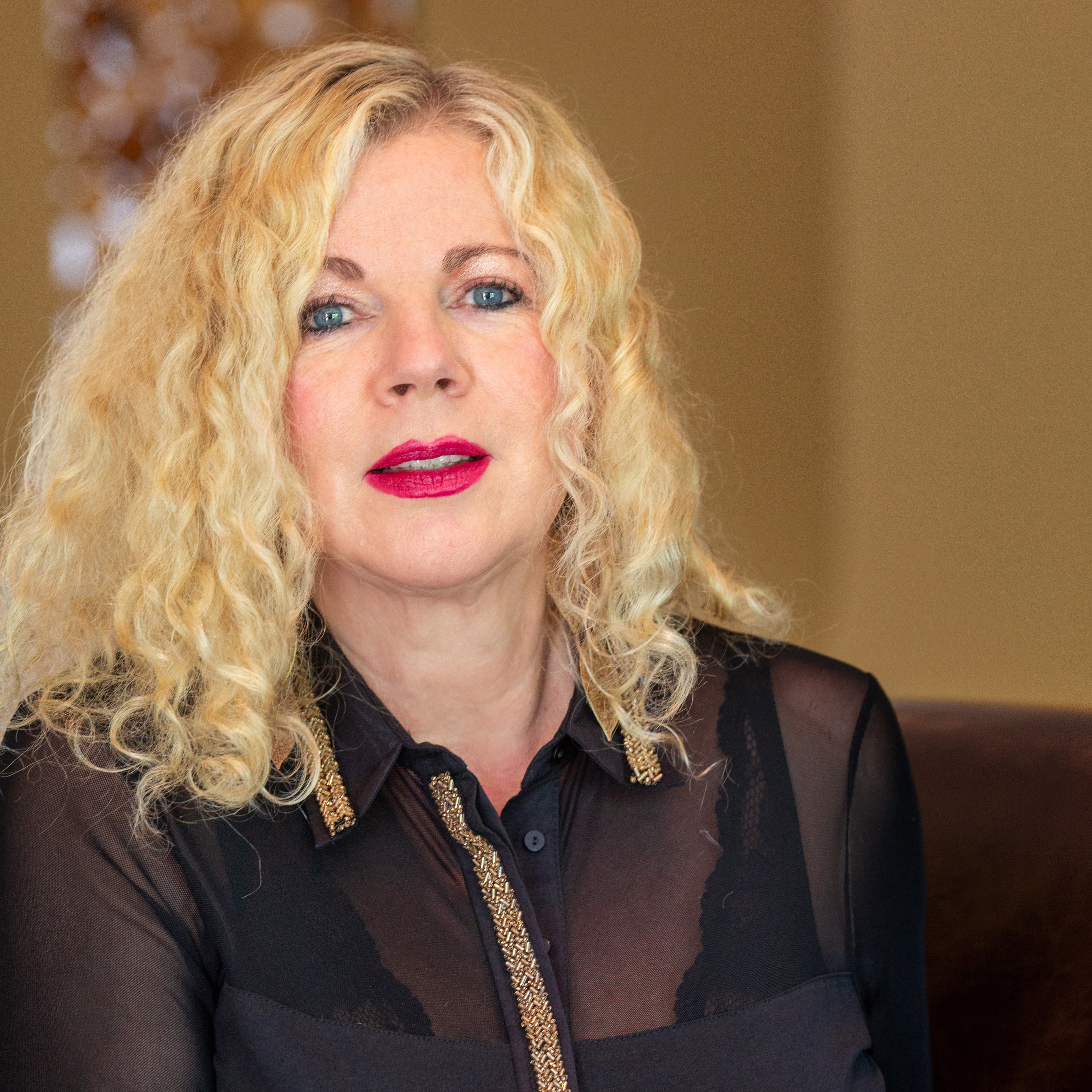
Empowerment & Mentoring
Mentor or man only?
Mentoring – does it only mean “passing on experience”? If there’s no reflection, the tradition of old patterns like war and destruction are also kept up. Real mentoring means leadership in the truest sense: promoting talent, as long as you are in connection with your genius – without any ego.

To be yourself in a world that is constantly trying to make you something else is the greatest accomplishment.
In 1978, 55-year-old Jazz musician Quincy Jones took on the job of remaking the “Wizard of Oz”. This venture turned out to be one of the greater flops in film history. But on this occasion, Jones met the “scarecrow” of the musical: pop musician Michael Jackson. Together, they decided to change pop music forever, an endeavor at which they succeeded quite well with the albums “Off the Wall”, “Thriller” and the international hit single “We Are the World”. But if Jones had only seen in Jackson a representation of himself, Jackson would likely have remained, well, just another pop singer of average success …
Mentoring must be a great thing. At least, a lot has been said and written about it. It’s that age-old story of the experienced man passing on his wisdom to the youth of today. Often, it’s about the classical father-son relationship in regard to a certain topic – almost synonymous with what happens in “coaching” in sports terms. A young talent goes into the care of an older one moving to the sidelines. In business, mentoring is also quite en vogue, promising personal training from scratch, guided by some kind of father figure, as a combination education/tutoring program.
But there’s a traditional problem with standard mentoring: the not-to-be-neglected conflict between father and son, such as that between curiosity and experience, and accordingly between totally different kinds of interests.
Mentoring is often referred to the relationship between father and son (which is also the case with women, by the way) – even though their conflict is stuff of legions of myths and plays over the ages. In contrast to the romantic ideal of this relationship, there is something we know as the “Oedipus complex”. The father rivals against the son long before the son does so himself. Finally, the son commits murder against his own father. The fact that Oedipus does so unconsciously in the Greek tragedy of the same name was the occasion for Sigmund Freud to speak of the Oedipal “complex”, with all its shades. Every father just wants the best for his son, he should have a better future than himself. With that, he tries to implement his own ideas, ideals, values. Since Sophocles’ day, these ideas are mostly war-driven. Even when the son finds his own way, he often takes over those programs of war patterns, in their modern shape of rivalry, control or corruption, continuing for generations. Unconsciously, ego-mentors often inadvertently pass on their own failures and frustrations, and thus ensure that the mentee will never develop beyond these borders.
Men are afraid of nothing.
Except admitting that they are afraid.
Very few people – be they fathers, bosses or entrepreneurs – have deleted these inner programs. Actually you can’t do it yourself. They often appear to act wisely and selflessly, but as mentors they operate on the ego level. A typical form of this development is the entrepreneur retiring from business without handing over control. When his ego values continue to be based on rivalry and war games patterns, the action is like in the movie “Inception”. The story is all about the huge effort involved in reprogramming the mind of a rivalling entrepreneur’s heir in order to take over the family business – by manipulating his dreams. In the end, they actually win this “war” when the heir awakes after a lot of battling and destructing on different “dream levels”. With the son’s agreement to destroy his father’s company, the traditional ego values are also transported and his father’s legacy deleted, although the son himself is of a more peaceful nature.
But on the ego level, it’s not about “winning” but about “defeating” competitors. Success only works by blocking and destroying others – like in the board game “Malefiz” (“Malicious” in English), where it’s all about winning by ruining others – there is no alternative. And protégés are also limited by this pattern even when they’d try to rise against their mentors. In academic circles as well, they talk about “patricide”, when some students try to overwhelm or directly attack their professors with new theories. In corporate businesses, the old joke goes like this: the first generation has an invention and the second turns it into a business, while the third is spends all the money. You could also take this as an unconscious fight against the influence of the “old generation”.
Real mentorship is only exercised when people want to give their genius to evolution.
Real mentoring can only start when the father figure himself has broken free from his inner ego bunker by discarding archetypical male ego values. It isn’t until you have developed to mastership and geniality in your field that you can be a mentor to others. Only then can you talk about a healthy, i.e. mutual, benevolent, ego-free, relationship based on curiosity and something coming close to love. Anything below this measure, you would just be a motivation theorist, trainer, companion, in best cases a really sympathetic team leader, educator or idolized boss; someone who wants the mentee to be someone you never evolved into.
As a mentor, Sonja Becker works as a guide out of the ego space for executive leaders. One cannot design this process on one’s own because of people’s unconscious programs. On the doorstep to real mentoring, fear stands as a guardian of ego – in this case, the fear of letting go of one’s oppression.
This is the biggest problem men have: they are afraid of nothing except admitting that they are afraid. Because they lose all respect for their environment, including mates, rivals and themselves. If this fear, especially embedded in men’s minds (see Oedipus), is repressed and displaced, it comes back as typical male authority and almost uncontrollable terror. More than feeling strong, they clear others out of the way because they feel weak. May it be sexually connotated or in a hostile takeover: outwardly it’s about standing one’s ground while deep inside the naked fear of failure rears its head. People facing their fears experience a stream of confidence like a warm rain. Sonja Becker is capable of steering this process by connecting leaders with their genius as a source of self-confidence. The “discovery of oneself” promotes trust in oneself, working as a fear destructor.
Human globalization is likely to be the result of real mentoring.
Sonja Becker leads the way from the battlefields of ego to the playground of exchange, play and real partnerships and friendships. By really being mentored, mentees move themselves in a kind of osmosis, less learning the “secret formula in the safe” than living the spirit behind the original innovation. So the creative spirit is passed on in harmony with natural laws, and the genius goes with the flow of evolution, with an awareness of nature’s creative structures. Because only few people reach this knowledge, only few creative spirits are capable of unfolding completely.
The way there resembles author and psychologist Joseph Campbell’s “hero journey”. Only by leaving the comfort zone, the calling from outside, the reflection of one’s persona by examinations and the return to the origin does one become a self-reflected hero. And only then does this individual have the opportunity to give something back to humankind and mentees. During the journey through male-dominated patterns, the mentee recognizes what the mentee does not need on their path: destruction, hierarchy, war, insincerity, all those negative means that supposedly sanctify the end. This is the chance to leave ego in favor of one’s true self.
Unfortunately, there are only few genius pioneers or leaders handing over their wisdom to one or more mentees. When a student looks for a mentor, they meet on the same field and discover the same life task. Then the student pushes the mentor with their talent and curiosity, and the other way around. This true kind of connection is probably deeper than many love relationships because it’s based on fate. It’s not ego anymore, but alter ego.
Mentoring on an alter ego level is selfless. All the huge hardships fall away along with the will to seed false values in the next generation. Instead, this relationship dominated by natural law is different, almost Buddha-like, because the laws of creation take over. The mentor is a signpost, the mentee follows their own curiosity and nature-given brilliance. Then, most things happen the way they should happen, just by joy and with a clue instead of arduous manipulation. This is the actual inversion of the ego cliché about “5 percent inspiration and 95 percent transpiration”, where 95 percent of toil, blood, sweat and tears are needed to fulfill the 5 percent of spirit.
Those who keep their inspiration small by working hard tend to work on self-optimization without a clue. In contrast, there is the possibility to create a legacy, fulfilling itself just by letting the mentee go on and make their own experience, to come back one day with a gift to humankind, just like Campbell says. And then, the wonderful story about mentoring starts anew.
In this way, mentoring can be the motor of a new kind of global humanity – as soon as people leave their own space to experience the world, sharing their curiosity and brilliance with others. Nothing else can make you feel rich the way gratefulness can. We all tend to give everything in order to experience this kind of gratefulness. Human globalization as the positive application of worldwide resources, along with digitalization, are making this possible for the first time in the history of humankind.

Contact
Are you curious and want to learn more?
We’d be happy to provide you with profound information about our offerings, with no obligation.
